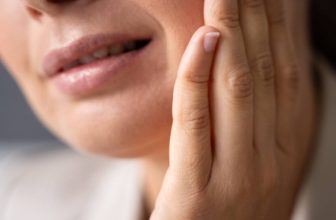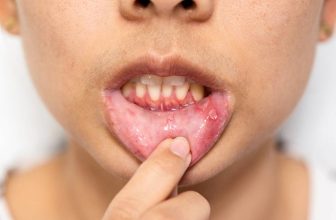
If you’ve recently had your wisdom teeth removed, you may be wondering what foods you can safely eat without causing discomfort or interfering with the healing process. Hash browns are a popular breakfast food that many people enjoy, but can you eat them after wisdom teeth removal?
Can I Eat Hash Browns After Wisdom Teeth Removal Safely?

Hash browns are considered a soft food, which means they are generally safe to eat after wisdom teeth removal. However, it is important to make sure they are not too hot, as this can irritate the extraction site. It is also important to chew slowly and carefully to avoid getting food stuck in the extraction site.
Why Is It Important to Be Careful with Food After Wisdom Teeth Removal?
After wisdom teeth removal, it is important to be careful with the food you eat. The extraction site is sensitive and can easily become irritated or infected. Eating certain foods can increase the risk of complications and prolong the healing process.
Why Should You Avoid Eating Hash Browns After Wisdom Teeth Removal?
While hash browns may seem like a soft food that is easy to eat after wisdom teeth removal, they can actually be harmful to your healing gums. Hash browns are often fried in oil, which can irritate the sensitive tissues in your mouth and delay the healing process. Additionally, the crispy texture of hash browns can be difficult to chew and may cause pain or discomfort.
What Are Foods Safe to Eat After Wisdom Teeth Removal?
After wisdom teeth removal, eating soft, nutritious foods that won’t irritate your gums or cause pain is important. Here are some examples of safe foods to eat:
- Mashed potatoes
- Smoothies
- Yogurt
- Applesauce
- Scrambled eggs
- Soup
- Oatmeal
- Ice cream
What Foods Should I Avoid After Wisdom Teeth Removal?
There are several foods you should avoid after wisdom teeth removal. These include:
- Hard, crunchy foods (such as chips and nuts)
- Sticky foods (such as caramel and gum)
- Spicy foods
- Acidic foods (such as citrus fruits and tomatoes)
- Carbonated drinks
- Alcohol
In summary, while hash browns may be tempting after wisdom teeth removal, it’s best to avoid them to ensure a smooth and speedy recovery. Stick to soft, nutritious foods that won’t irritate your gums or cause pain, and you’ll be back to your normal routine in no time.
Tips for a Smooth Recovery
After wisdom teeth removal, taking care of yourself is important to ensure a smooth recovery. Here are some tips to help you manage pain, keep your mouth clean, prevent dry sockets, and know when to contact your dentist.
How to Manage Pain and Discomfort
Pain and discomfort are common after wisdom teeth removal. Here are some tips to help you manage them:
- Take pain medication as prescribed by your dentist.
- Apply an ice pack to your cheeks for 20 minutes at a time to reduce swelling.
- Eat soft, cold foods like yogurt, smoothies, and mashed potatoes.
- Avoid hot, spicy, and crunchy foods that can irritate the extraction site.
How to Keep Your Mouth Clean
Keeping your mouth clean is essential for preventing infection. Here are some tips to help you keep your mouth clean:
- Brush your teeth gently with a soft-bristled toothbrush.
- Rinse your mouth gently with salt water after meals to help reduce swelling and prevent infection.
- Avoid using mouthwash for the first few days after surgery, as it can irritate the extraction site.
How to Prevent Dry Socket
A dry socket is a painful condition that can occur after wisdom teeth removal. Here are some tips to help you prevent it:
- Avoid using straws for the first few days after surgery, as the sucking motion can dislodge the blood clot and delay healing.
- Don’t smoke or use tobacco products for at least 72 hours after surgery, as they can delay healing and increase the risk of dry sockets.
- Be gentle when brushing and flossing around the extraction site to avoid dislodging the blood clot.
When to Contact Your Dentist
Knowing when to contact your dentist if you experience any complications after surgery is important. Here are some signs that you should contact your dentist:
- Severe pain that isn’t relieved by pain medication.
- Excessive bleeding that doesn’t stop after applying pressure for 20 minutes.
- Fever, chills, or other signs of infection.
- Numbness or loss of feeling in your lips, tongue, or chin.
Following these tips can help ensure a smooth recovery after wisdom teeth removal. Remember to take it easy and give yourself time to heal.
Popular Read: Can You Eat Pho After Wisdom Teeth Removal?
Frequently Asked Questions
If you’ve recently had a tooth extraction, you may wonder what foods you can eat during your recovery period. Here are some frequently asked questions to help guide you:
Can you eat potatoes after teeth extraction?
Yes, you can eat potatoes after teeth extraction, but only if they are cooked until they are soft and easy to chew. Mashed potatoes or boiled potatoes are good options. Avoid adding any hard or crunchy toppings like bacon bits or fried onions. You should also avoid french fries or any other fried potato dishes.
How long should you stick to a soft food diet after teeth extraction?
You should stick to a soft diet for 24 to 48 hours after teeth extraction. After that, you can gradually start to introduce more solid foods as long as they are soft and easy to chew. Avoid hard, crunchy, or sticky foods for at least a week after the procedure to prevent any damage to the extraction site.
Conclusion
In conclusion, if you have recently had your wisdom teeth removed, it is important to be careful with the food you eat. While hash browns are generally safe to eat, avoiding hot temperatures and chewing slowly and carefully is important. Soft, nutrient-rich foods are the best options for a smooth and speedy recovery.







